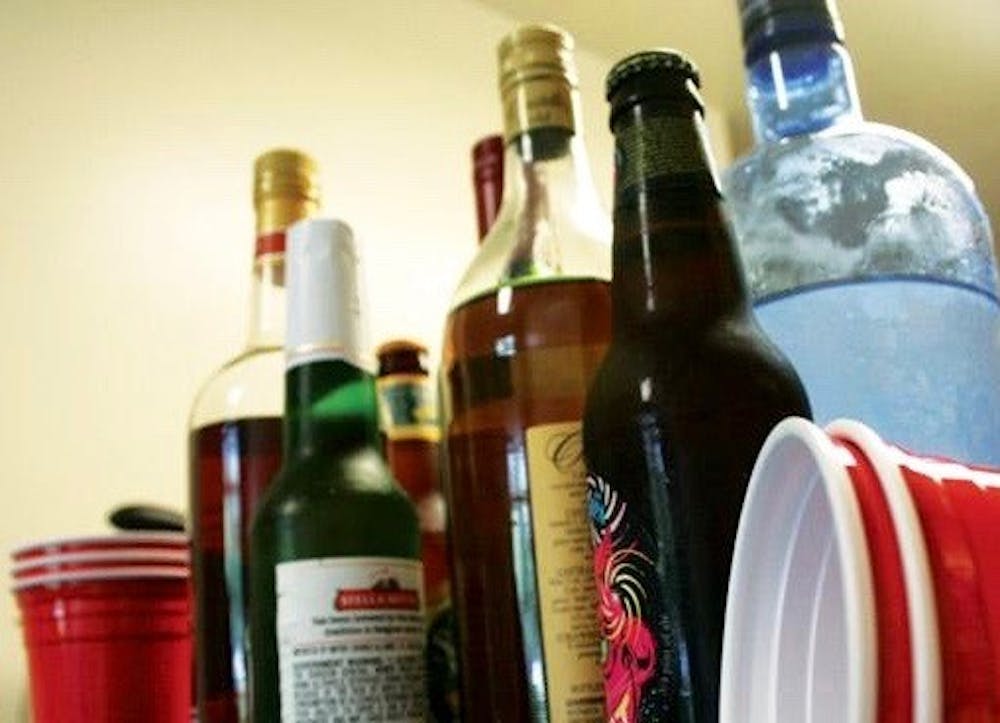Every Monday, Wednesday and Friday, I walk across campus to my 8 a.m. class. And on Mondays and Wednesdays, most of my classmates do the same. On Fridays, however, our classroom is routinely only a little over half full.
On one particular Friday, my professor became so frustrated over low attendance that he angrily asked, “Can anyone give me an explanation for why people aren’t here right now? I’m serious. Can anyone offer an explanation for this?” At the time, I did not raise my hand, but I knew the answer.
Almost every student here would. Mention the lack of attendance on Fridays to students (even those that do not drink or party), and their response is likely to be some version of, “Of course there is low attendance on Friday. Thursday nights are for going downtown.”
Knowledge of where the parties are on Thursdays, Fridays and Saturdays might as well be offered to incoming students as part of orientation, as it’s certainly more embedded in our campus culture than Proclamation Night or Investiture. During their time at University of Richmond, many students seem to view their classes as an impediment to time that could be spent on what college is really about: partying. As a sage once noted, “College is a fountain of knowledge ... and the students are there to drink.”
A few weekends ago, on a Saturday around midnight, I headed down the hallway to brush my teeth in one of our hall bathrooms, where I was stopped by one of my floor mates. “Just so you know, someone pooped in the shower, so it smells really bad in there,” she said. I proceeded into the bathroom, which, true to my floor mate’s report, reeked. To add to the experience, a girl was vomiting poisonous levels of alcohol in one of the stalls.
At around three in the morning, I got up again to go to the bathroom. Reasoning that using our hall’s other bathroom would be my best bet for cleanliness, I walked in. My shoes felt strangely sticky. I looked down and realized I was walking in vomit that was coating the bathroom floor.
I’ve been collating these experiences and a myriad of others like them in a file in my mind that I’ve labeled “drunken privilege.” It's different from the types of privilege commonly discussed on our campus. One, as far as I can discern, it has no obvious class, race, ethnicity, gender or sexuality attached to it. Two, drunken privilege is used to absolve people of any responsibility for their actions (“I was too wasted to know what I was doing”) in ways that would never be permitted for other forms of privilege. Three, unlike all of the other types of privilege, no one on campus wants to discuss it. Because that would be difficult, would it not?
It would require self-reflection and an acknowledgement that skipping class to nurse a hangover represents a privilege that few in this world have. The Huffington Post reported in 2010 that only 6.7 percent of the world had a college degree. I feel confident that many of the people who make up that other 93.3 percent would have a hard time imagining skipping part of an education that they currently cannot even access.
More personally, confronting drunken privilege would also mandate that we as a community think about who cleans up our crap (literally). We talk with passion and conviction in our classes about oppression, marginalization, and exploitation. Yet we fail to consider how these issues acutely manifest themselves when the members of our maintenance staff, the majority of whom are probably demonstrably less privileged than us, clean up the biohazardous products of our irresponsibility. Have we even taken the time to learn their names?
Until we are ready to have a real discussion about the way drunken privilege manifests itself on our campus and the impact that it has on those who work to provide us with a clean and safe environment, concerns about hypocrisy should stop students from seeking to ferret out and critique privilege in others.
Contact contributor Lauren Onestak at lauren.onestak@richmond.edu.
Enjoy what you're reading?
Signup for our newsletter
Support independent student media
You can make a tax-deductible donation by clicking the button below, which takes you to our secure PayPal account. The page is set up to receive contributions in whatever amount you designate. We look forward to using the money we raise to further our mission of providing honest and accurate information to students, faculty, staff, alumni and others in the general public.
Donate Now



